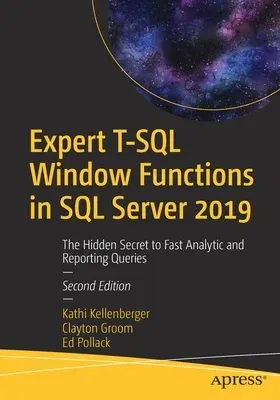Become an expert who can use window functions to solve T-SQL query
problems. Replace slow cursors and self-joins with queries that are easy
to write and perform better. This new edition provides expanded
examples, including a chapter from the world of sports, and covers the
latest performance enhancements through SQL Server 2019.
Window functions are useful in analytics and business intelligence
reporting. They came into full blossom with SQL Server 2012, yet they
are not as well known and used as often as they ought to be. This group
of functions is one of the most notable developments in SQL, and this
book shows how every developer and DBA can benefit from their expressive
power in solving day-to-day business problems. Once you begin using
window functions, such as ROW_NUMBER and LAG, you will discover many
ways to use them. You will approach SQL Server queries in a different
way, thinking about sets of data instead of individual rows. Your
queries will run faster, be easier to write, and easier to deconstruct,
maintain, and enhance in the future.
Just knowing and using these functions is not enough. You also need to
understand how to tune the queries. Expert T-SQL Window Functions in
SQL Server clearly explains how to get the best performance. The book
also covers the rare cases when older techniques are the best bet.
What You Will Learn
-
Solve complex query problems without cumbersome self-joins that run
slowly and are difficult to read
-
Create sliding windows in a result set for computing such as running
totals and moving averages
-
Return aggregate and detail data simultaneously from the same SELECT
statement
-
Compute lag and lead and other values that access data from multiple
rows in a result set
-
Understand the OVER clause syntax and how to control the window
-
Avoid framing errors that can lead to unexpected results
Who This Book Is For
Anyone who writes T-SQL queries, including database administrators,
developers, business analysts, and data scientists. Before reading this
book, you should understand how to join tables, write WHERE clauses, and
build aggregate queries.
**
**


